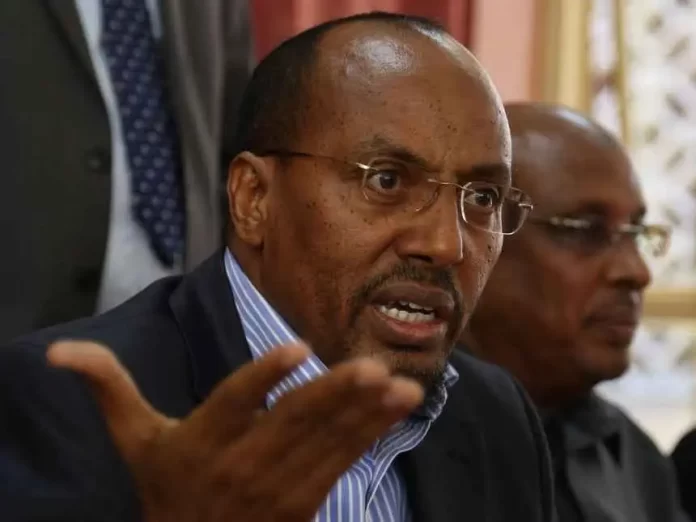Billow Kerrow, a prominent Kenyan politician, the former Senator of Mandera County and Chair of the Senate Finance and Budget Committee, as well as the former Member of Parliament of Mandera Central and Shadow Finance Minister based in Nairobi, has reacted to Somaliland’s decision to give over 20 kilometres to Ethiopia, stating that it’s a real slap in the face of the President of Somalia, H.E Hassan Sheikh Mohamud.
This followed the signing of a Memorandum of Understanding (MoU) between the Republic of Somaliland Government and the Federal Democratic Republic of Ethiopia for seaport access in exchange for international recognition, according to the joint statement released by both governments on Tuesday, January 2, 2024.
“Coming only days after the meeting in Djibouti, it is a slap in the face of the president of Somalia. I thought my friends in Somaliland were smart; their action is disastrous even for their future,” Kerrow said.
According to Kerrow, the decision by the Somaliland administration to give 20 km of territory to Ethiopia for a naval military base is a dumb idea that breaches international law.
He added that separatists fight for territory first and foremost, then recognition.
“When you give away part of the territory, you lose legitimacy, and your ideals are buried,” he said on X.
According to Kerrow, with such weakness, it’s a matter of time before Ethiopia tries to annex Somaliland itself.
“Many of the regional leaders in Somalia are proxies of Ethiopia. It will be interesting to see how Somalia will respond to this aggression, he said.
Meanwhile, Somalia’s cabinet will hold an emergency meeting on Tuesday, January 2, 2024, to discuss a pact Ethiopia signed with the breakaway region of Somaliland, allowing the former to use the Red Sea port of Berbera.
















Ethiopia has its own internal affairs to deal with that poses challenges for its stability and territorial integrity. Not sure why it would have greater “hegemonic” ambitions beyond its borders as that would contribute to more regional conflict and instability and tax its scarce national treasures that could otherwise be used for development purposes. Shouldn’t African leaders use their platforms to espouse more common ground, regional collaboration, and advocate for peaceful co-existence than fuel divisive rhetoric.